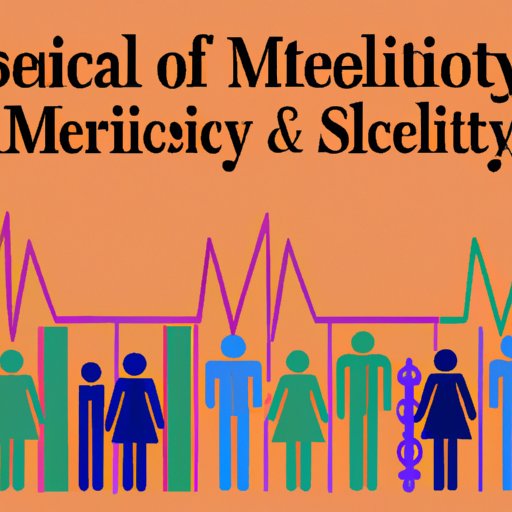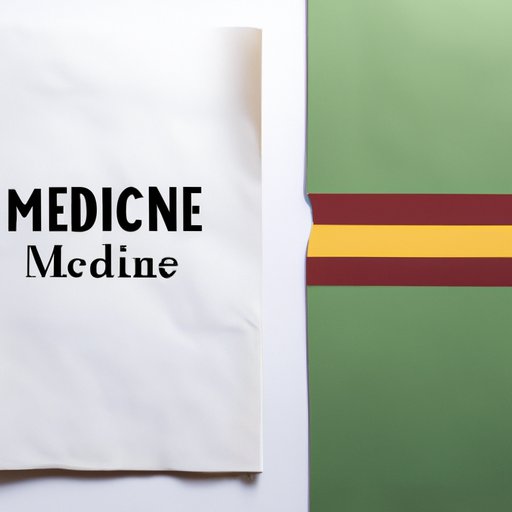Introduction
Medicine is an ever-evolving field that has changed significantly over the decades. Today, we have access to life-saving treatments and technologies that were unthinkable just a few decades ago. Doctors and medical professionals have a unique skill set and training we rely on to maintain our health and wellbeing. In this article, we explore the history of medicine, its ethical considerations, alternative medicine, its future, its impact on society, and mental health. We also discuss the daily challenges faced by medical professionals and their rewards.
The History of Medicine: Ancient Treatments to Modern Healing
Humans have been practicing medicine since ancient times, using herbs, rituals, and surgery to cure illnesses. However, modern medicine as we know it today has its roots in the 19th and 20th centuries. The discovery of penicillin revolutionized medicine and the treatment of diseases. Since then, science and technology have made rapid strides towards controlling and curing illnesses such as cancer and Alzheimer’s disease. Today, modern medicine has advanced to such an extent that life expectancies are much superior to the past.
The Ethics of Medicine: Balancing Patient Autonomy with Medical Interventions
Medical ethics govern healthcare professionals’ actions and the choices made that impact health. Four principles guide medical ethics: autonomy, non-maleficence, beneficence, and justice. These principles sometimes come into conflict, as in cases involving end-of-life care. Ethical issues in medicine are not fundamentally theoretical but stem from real-life situations they face every day. Research says that balancing patients’ comfort, privacy, and dignity will also be a growing ethical and legal challenge in the years ahead.
Alternative Medicine: Exploring Non-Traditional Paths to Healing
The increasing popularity of alternative medicine is significantly visible today. The increased interest in natural or alternative treatments, such as herbs, acupuncture, and meditation, stems from people’s dissatisfaction with conventional medicine. While some alternatives may appear nonscientific, many emphasize a holistic approach that can address mental and emotional needs, but the efficacy is still debatable. Patients opting for alternative medicine need to thoroughly research before selecting such treatments.
The Future of Medicine: Advancements in Technology and Treatment
Medical advancements due to radically new technologies and treatments that are being developed daily will have an significant impact on healthcare delivery in the coming years. Telemedicine and wearables will make medicine easier to access for patients living in remote areas. Gene therapy and immunotherapy offer promise for treating a variety of illnesses, including heart disease and cancer. Even clinical trials for COVID-19 vaccines took a much shorter time than what we previously knew. While there is much progress to be made in areas such as accessibility and cost, the future of medicine is filled with hope and opportunity.

Medicine and Society: Addressing Health Disparities Across Communities
Health disparities pose an immense challenge in medical settings and affect vulnerable populations disproportionally. Certain communities are more at risk, like low-income communities and racial minorities, due to sociodemographic and health factors. It is necessary for healthcare professionals to address these issues and work towards improving health equity instead of solely focusing on treatments for a particular disease. Better access to medical care and education can help close the gap between the rich and the poor, leading to a healthier society.
Medicine and Mental Health: The Intersection of Physical and Emotional Wellness
Mental and physical health are intertwined, and problems in one area can lead to challenges in the other. Mental disorders such as depression and anxiety are common and can have a significant impact on people’s lives. Addressing these disorders along with physical health plays a crucial role in recovery. Healthcare professionals need to treat their patients holistically and listen to the patient’s needs and provide appropriate follow-up care.
A Day in the Life of a Medical Professional: Understanding the Challenges and Rewards of the Profession
Medical professionals tend to work long hours, and the job can be emotionally and physically taxing. The daily routine of a medical professional includes seeing patients, attending conferences, and performing research. Despite the challenges, the rewards of the medical profession are significant, such as the ability to make a difference in people’s lives and the ability to improve health. High demands for highly trained medical professionals lead to job growth, high salaries, and a rewarding job that helps society prosper.
Conclusion
Medicine is an ever-evolving field, expanding with the demands of people’s health needs. The world of medicine is undoubtedly intriguing, but comprehensive knowledge is essential in taking responsibility for our well-being. From the ancient era’s herbal potions, medical breakthroughs in penicillin, to the future of gene therapy and immunotherapy, medicine still has more surprises for us to behold. By balancing ethical considerations and incorporating innovations and analyzing common trends, we can effectively address the challenges and opportunities of medicine to provide better healthcare for everyone.
